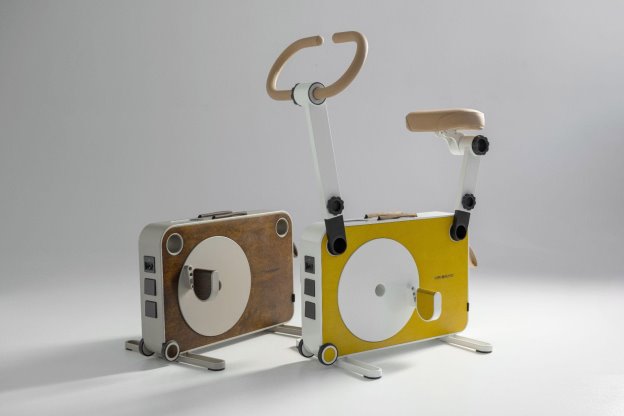Sustainable design to combat e-waste in tech industry

Amidst the matter of environmental challenges, one of the most significant concerns is the growing problem of electronic waste (e-waste). Annually, there are 347 million metric tonnes of e-waste produced globally, yet only 17.4% undergo proper recycling. This trend is marking the need for the tech industry to shift towards more eco-friendly designs and manufacturing processes.
Addressing e-waste challenge through sustainability
The technology sector, being a main contributor to e-waste, is now under heightened scrutiny to minimize its ecological footprint. In a notable development, Tukas EV, an example of sustainable practices, has introduced the HR Bank — an exercise bike that also functions as an energy storage unit. With it, users can generate power by utilizing solar, kinetic or wind energy sources.
Aurelijus Jaškulis, COO of Tukas EV, shares, “Our goal was to create a product that fits effortlessly into different lifestyles and spaces, proving that practicality, aesthetic appeal, and eco-friendliness can coexist.” The HR Bank exemplifies this vision, combining a sleek design with environmentally responsible materials.
Customizable design for diverse needs
Understanding the diverse needs of users, the HR Bank has been thoughtfully designed with adjustable components such as handlebars, seats, and tilt angles, accommodating users of all ages. Additionally, it also comes with an optional desk attachment, making it ideal for both home and office use. This type of focus on adaptability encourages long-term usage, resonating with a commitment to sustainable consumer practices.
In its production and mission to stay eco-friendly, Tukas EV has also opted for sustainable materials such as recycled aluminum and FSC-certified birch plywood, reducing reliance on new resources and minimizing energy consumption during production.
A design for personalization, functionality, and sustainability
Product design has the potential to not only influence a user’s consumer habits but also motivate them to change habits and shift towards more sustainable choices. “Through extensive prototyping and user feedback, we ensured the HR Bank not only meets diverse needs but also embodies our strong commitment to the environment,” Jaškulis notes.
Highlighting the growing consumer awareness of environmental impacts, Jaškulis stresses the necessity for businesses to adopt eco-friendly practices in all operations. “It’s vital for companies to adopt a more environmentally conscious approach in all aspects of their operations if we want to lessen our eco-footprint and minimize the waste we produce.”
Embracing sustainable design is crucial in addressing current environmental challenges. Companies worldwide should consider adopting an eco-conscious approach, recognizing its pivotal role in creating a responsible and sustainable future.




